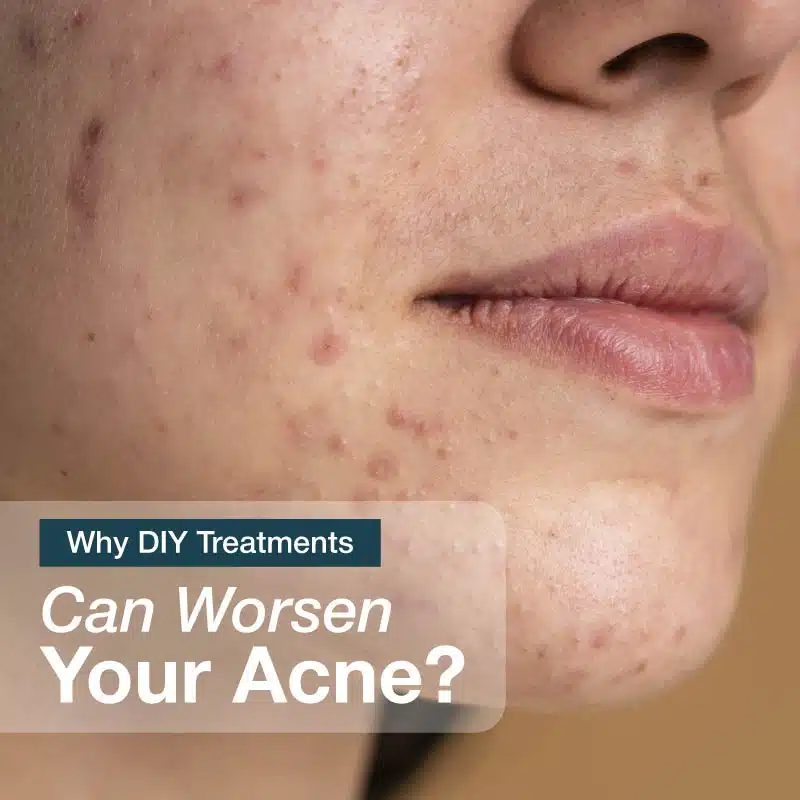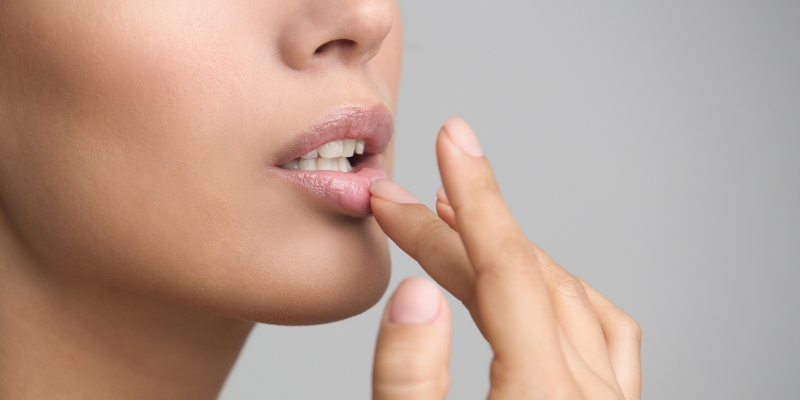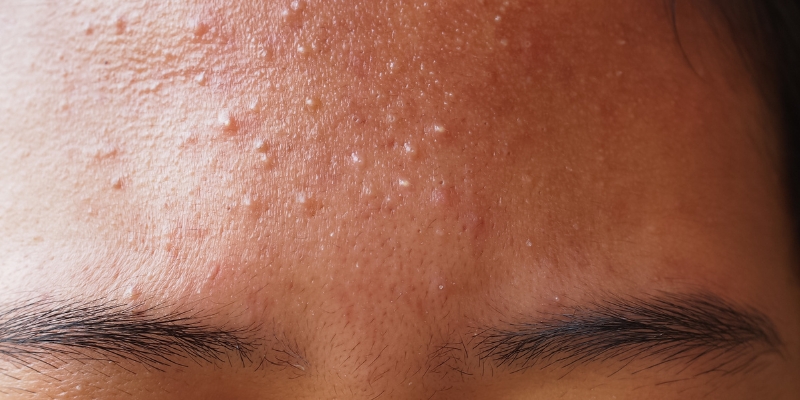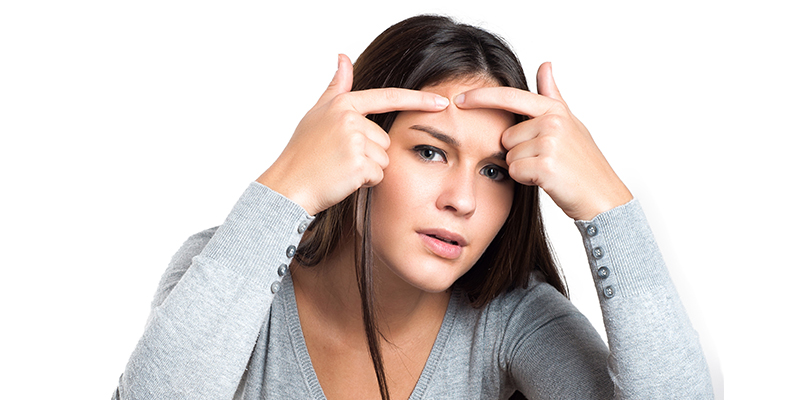In This Article
Scalp Acne: Causes, Types, Symptoms and Treatment
Dealing with acne on your face is a big nightmare, but what do you do when it attacks your scalp? Scalp acne is real, and it can affect anyone. There are many causes and solutions for this annoying affliction. Read on to understand more about acne on scalp.
In This Article
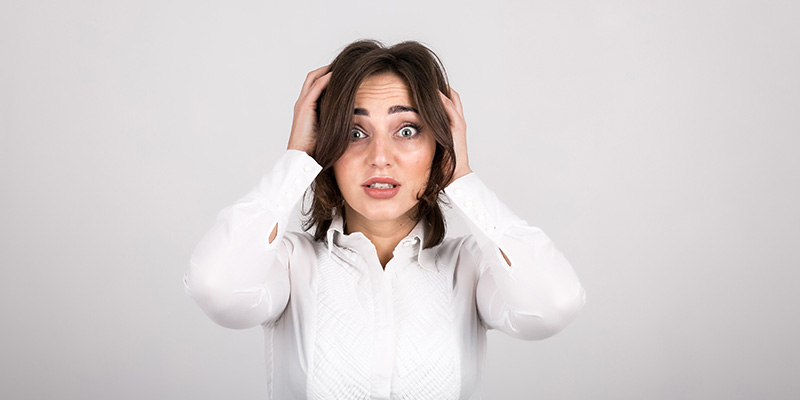
What Is Scalp Acne?
A pimple on scalp is a type of acne that is the result of hair follicles being blocked by sebum, dirt, and dead skin. The clogged pores start to inflame, and the pimple starts to form in its place. Scalp acne is commonly seen around the hairline; however, it can occur anywhere around the entire scalp as well. Acne on scalp is easily understood as “pimples/ acne on the head”, which is a common concern in India. This problem affects people of all age groups (it’s seen in babies as well). Acne on head is a treatable condition that can be easily sorted out by dermatologists. Medical tests are not required for diagnosing this condition.
Must Read: Effective Treatments For Acne/Pimple
What Causes Pimples On Scalp?
Scalp acne is mainly a result of unhygienic practices and excessive sebum production. But, there can be more underlying causes that can result in small, painful, red bumps on your scalp.
- Hormonal Imbalance: The main underlying issue when it comes to acne is due to hormonal imbalance. Fluctuation with the androgen hormone can cause the body to produce sebum in large quantity. When the hair follicles are clogged with debris and oil, it leads to inflammation and the end result is a pimple.
- Stress: Stress has been known to trigger hormonal imbalance and set a chain reaction for negative mood swings. Such unwanted reactions can cause inflammation on any part of the body. It can even lead to pimples on scalp.
- Dandruff: Any substance that blocks or clogs the hair follicle can cause a pimple to erupt. Dandruff is dry, dead skin flakes that can easily congest pores and lead to pimples on scalp.
- Hot And Humid Conditions: When your skin is exposed to hot, humid temperature, it reacts by sweating excessively. Sweat can cause the dead skin to lift and block the hair follicles. Extreme climate does increase the chances of developing acne, even on the scalp.
- Hair Care Products: Hairstyling is of utmost importance to all of us, but dousing your scalp with numerous hair products will definitely cause a drastic side effect. Scalp acne is easily developed in those who use oily products (hair gels, sprays, waxes, etc.) on a daily routine.
- Oily Scalp And Dry Skin: Both combinations can cause acne on scalp. Dry skin will produce unwanted dead skin cells, and oily scalp will produce an excessive quantity of sebum. All of which are the main reasons why scalp acne exists! Speak to your dermatologist if you have this combination skin on your scalp.
- Acne In Families: Acne can run in the family whether it is on the face, scalp or any other body part. If it’s a hereditary problem, consider letting your dermatologist know about this factor.
- Drugs: Drugs such as lithium, estrogens, androgen or corticosteroids may cause side effects that can affect your scalp in the form of pimple on scalp. Talk to your doctor if such severe problems are occurring due to any medication.
- Dirty Environment: Working in polluted factories, buildings or other such environments can cause the scalp to break out and lead to scalp acne. Please wash your scalp on a daily basis if you work or live in such places.
- Diet: A diet rich in fat and sugar will increase the body’s sebum production. Avoid eating processed food (biscuits and chips) and deep fried food (samosa, spring rolls, fried chicken, crisps, French fries).
Must Read: How To Get Rid Of Acne On Chin?
Types Of Acne On Head
Acne on head is also known as scalp folliculitis. There are different variations and severity levels of pimples on head.
- A pimple can be mild (small and vanishes quickly). There may be blackheads and whiteheads present as well.
- The moderate form of pimple will include pustules and papules. There are painful and large in size. They discharge yellowish liquid, and they may leave a scar or blemish behind.
- Severe scalp acne is known as dissecting cellulitis and acne necrotica. They leave a blackened crust which then leads to a permanent scar. Nodules and cysts are often seen with severe acne. They are embedded deep into the skin’s surface. You may experience heavy hair fall and small patches of baldness along with severe pain.
Scalp Acne Symptoms
Scalp acne can occur at any age, and it is not linked to pubescent years. It can appear in several ways
- Small pimples and spots (mild acne) can be seen on the forehead, on the edge of the hairline.
- The scalp becomes very itchy with pustules becoming overbearing and uncomfortable.
- Tiny red bumps are visible on the entire head.
- The pimples that pop will eventually begin to ooze and crust.
- Hair will start to dry and mattify.
- If scalp acne is ignored and left untreated, scarring and bald patches will start to appear.
- On the extreme end, scalp acne can cause scalp folliculitis, which is a type of infection that affects the hair follicles. Although scalp acne is not an infectious disease, scalp folliculitis can be infectious.
- Acne necroticamiliaris is a rare form of scalp folliculitis. It is severe and highly painful. It can occur on other parts of the body as well as the face.
- Those who use oily hair products often end up with Pomade acne. It is mainly visible around the hairline (forehead and temples).
- A thick band like scar can occur around the hairline at the back of the scalp. This scar occurs post scalp acne commonly known as acne keloid.
Must Read: How To Get Rid Of Pimples On Face?
Scalp Acne Treatments
There are many ways to treat scalp acne. The ideal solution will be to go to a medical expert before jumping on to the natural remedy wagon. Here are some recommended scalp acne treatments that must be prescribed by a licensed dermatologist after proper consultation.
Topical Treatments For Scalp Acne
- Salicylic Acid: Using salicylic acid helps control sebum production and reduces acne-causing bacteria. Soak a cotton ball with this acid and dab it gently on a freshly cleansed scalp.
- Glycolic Acid: Glycolic is known to gently exfoliate the skin without over-drying it. Use a mild shampoo that contains glycolic acid. Using this shampoo twice a week will prevent further breakouts.
- Ketoconazole Or Ciclopirox: These are anti-dandruff shampoo ingredients that work well for scalp acne. They can be used alongside anti-dandruff conditioners for added benefit.
- Steroid Injections: If you are suffering from severe scalp acne that does seem to be healing or reducing in any way, you may be in dire need of steroid injections.
Must Read: How To Get Rid Of Pimples On Forehead?
Oral Medicines for Scalp Acne
- Isotretinoin/Accutane: An excellent remedy that helps shrink the pore size and control oil glands present on the scalp. Using this will help reduce any blemishes and control acne in the future.
- Benzoyl Peroxide: It is one of the best remedies to combat scalp acne. A word of caution; Benzoyl Peroxide can alter your hair colour. Use it sparingly on the areas with the acne.
- Prescription Medication: Scalp folliculitis can be tricky and will need prescribed medicine such as erythromycin or clindamycin to fight the bacterial growth. A topical steroid will also be required to reduce inflammation.
- Antibiotics: Severe scalp acne lesions will require antibiotics to fight the acne-causing bacteria. Oral medication is required for scalp folliculitis; the doctor may even recommend anti-histamines that reduce the inflammation. Ignoring scalp acne will aggravate the existing condition. Talk to your dermatologist and seek immediate relief.
Must Watch:





